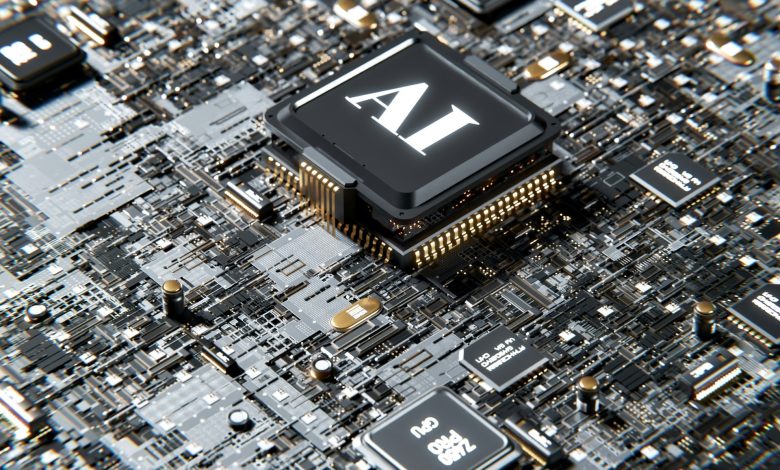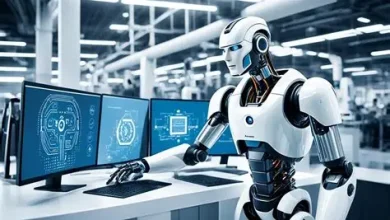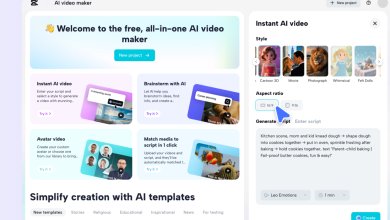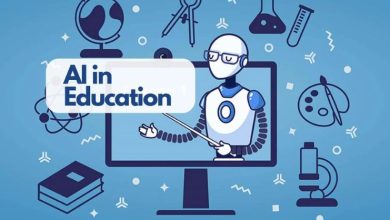
The Debate Around AI and Jobs
Few topics spark more debate today than artificial intelligence (AI) and its impact on the workforce. Commentators, employees, and executives alike wrestle with the same question: is AI going to replace jobs, or will it create new opportunities?
The answer is both. But the real story is more nuanced than headlines suggest. AI is not a monolithic “job killer.” Instead, it is a force reshaping the nature of work, requiring us to rethink what roles humans are best at, which tasks can be automated, and how companies can prepare their people for new opportunities.
From the employee’s perspective, it’s natural to feel fear—automation seems like it’s taking something away. Yet from the consumer’s perspective, it almost always adds something: better service, more consistency, faster response times, and fewer errors. The jobs most at risk are not the ones where human creativity, empathy, or judgment matter, but the ones where accuracy and repetition are key. What disappears is monotony; what remains is meaningful work.
In other words, while workers may worry about loss, consumers will see gains. And those gains ultimately create the conditions for new roles—because when businesses delight customers, they grow, and growth creates fresh demand for human talent. AI doesn’t end work; it pushes us toward the kind of work that matters most.
What Jobs Should Be Automated
Automation is not inherently negative. In fact, there are entire categories of work that are better suited for machines:
- Tasks that require perfect accuracy and repeatability
- Tasks that carry higher risk when left to human error
- Tasks that lack any human-to-human interaction or emotional intelligence
Think about tasks like typing numbers into spreadsheets, checking boxes for compliance, or logging quality reports. These jobs don’t really capture what makes us human — they’re repetitive, routine, and often the kind of entry-level work that burns people out. AI and automation can handle them faster and with fewer mistakes, which means less risk and better results. And when those tasks are taken off our plate, people are freed up to focus on work that actually matters and adds more value.
Why Upskilling Is the Real Opportunity
When routine tasks are automated, the natural pathway forward is reskilling and upskilling.
Organizations have always invested in training their people for higher-value work, and AI only amplifies this need. According to a 2023 IBM Institute for Business Value report, 40% of the global workforce will need to reskill in the next three years as AI and automation continue to advance.
New roles are already emerging:
- Prompt engineers skilled at eliciting the best results from AI systems.
- Data stewards who maintain, update, and monitor large AI-driven projects.
- AI operations managers responsible for orchestrating workflows, agents, and automation at scale.
These roles are not theoretical but are already appearing across industries today. They require creativity, judgment, and problem-solving, the uniquely human traits that machines cannot replicate.
The Co-Pilot Model of Work
It is tempting to imagine AI as a replacement for people, but the more useful framing is AI as a co-pilot.
- Each individual may soon work with several AI “agents” that multiply productivity by three to five times.
- Companies that once required 500 employees may operate with 150, while maintaining the same output.
This shift does not have to be negative. With AI handling rote work, humans can focus on customer-facing tasks, strategic problem-solving, and creative innovation. The result is leaner, more agile organizations better positioned to achieve their goals. At the end of the day, customers and consumers win.
Rediscovering the Value of Customer Service
Perhaps the most overlooked benefit of AI is that it can help restore something society has lost: great customer service.
Anyone who has dined out or visited a retail store in recent years has experienced this decline. Cleanliness is overlooked. Staff are disengaged. Personal service is rare.
By automating repetitive back-office tasks, companies can reallocate human energy toward delighting customers. Machines can deliver consistency, but only people can smile, empathize, and create loyalty.
In this sense, AI could spark a return to a more customer-centric economy, where human work is defined by care and service rather than monotony.
AI as a Launchpad for Entrepreneurs
The third and often ignored outcome of AI is its role in making entrepreneurship more accessible.
Starting a business has traditionally been costly and risky. Today, AI and automation lower that barrier significantly:
- Digital tools reduce operational overhead.
- AI agents can handle early-stage administrative tasks.
- Cloud services make it easier to scale without massive upfront investment.
This matters because small businesses have historically been the engine of job creation. According to the U.S. Small Business Administration, small firms account for nearly two-thirds of net new private-sector jobs in the U.S. If AI empowers more entrepreneurs to solve niche problems, the ripple effect across the economy could be enormous.
Large companies also benefit. Many acquire startups to solve micro-problems they cannot tackle internally. AI lowers the cost of building these startups in the first place, expanding the pipeline of innovative solutions available to the market.
The Three Buckets of the Future of Work
When we zoom out, the impact of AI on jobs falls into three clear categories:
- Replacement — Repetitive, low-value tasks are automated.
- Upskilling — Workers move into higher-value roles through training and cross-skilling.
- Entrepreneurship — AI lowers barriers for new ventures, enabling individuals to solve micro problems that were once too expensive to address.
Each pathway carries risk, but risk has always been the price of opportunity. Wealth, innovation, and growth require people to adapt, learn, and seize new possibilities.
Executives Have an Opportunity
For executives, the mandate is clear:
- Invest in workforce transformation. Build training programs that prepare employees for AI-enabled roles.
- Redefine success metrics. Focus not just on efficiency but on customer satisfaction and employee growth.
- Encourage internal entrepreneurship. Give teams the tools to innovate with AI inside the company, not just outside of it.
For workers, the challenge is equally clear: be proactive. Seek out reskilling opportunities, explore new tools, and stay alert to problems AI can help you solve. The future belongs to those willing to adapt.
AI is not the end of jobs, it is the redefinition of work. It will automate what should be automated, elevate humans into higher-value roles, and unlock a new wave of entrepreneurship.
The real question isn’t whether AI will replace jobs. The real question is: will we seize the opportunity to upskill, serve, and create?



